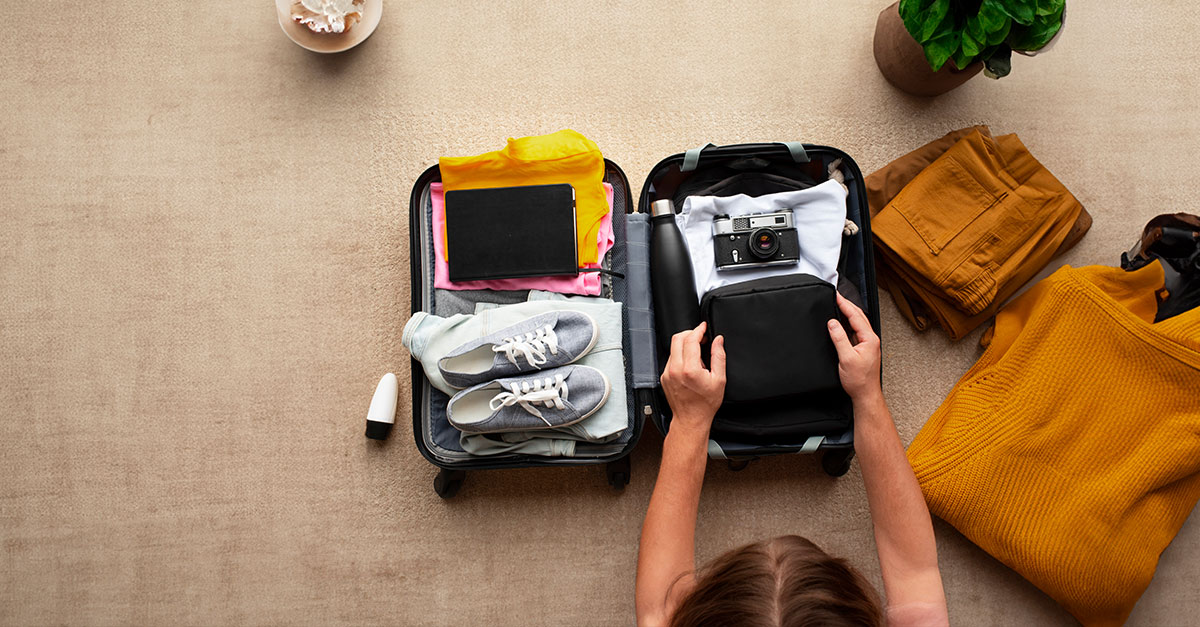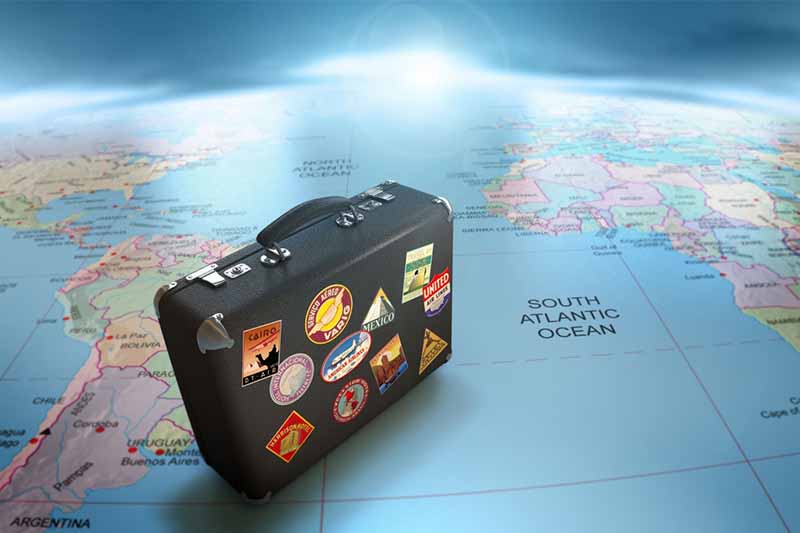Planning a dream vacation is an exciting and rewarding process, but it can also be overwhelming with so many details to consider. Whether you’re seeking a relaxing beach retreat, an adventurous mountain escape, or a cultural city tour, the key to a successful trip lies in careful planning. From choosing the right destination to managing your budget, this guide will walk you through the top tips to ensure your dream vacation becomes a reality.
Set Clear Travel Goals
The first step in planning your dream vacation is to define your travel goals. What do you want to get out of this trip? Your objectives will guide your entire planning process and help you focus on what matters most. Consider the following:
Relaxation vs. Adventure
Are you looking to unwind and relax, or do you want an action-packed adventure? This decision will significantly impact the type of destination and activities you choose. If relaxation is your priority, you might consider a tropical beach or a luxurious spa resort. On the other hand, if adventure excites you, you could opt for a hiking expedition in the mountains, a wildlife safari, or a road trip through scenic landscapes.
Cultural Immersion vs. Exploration
Some travelers are interested in immersing themselves in new cultures, exploring historical sites, or attending local festivals. Others might prefer simply to explore nature or enjoy outdoor activities. Consider whether you’d like to dive deep into a city’s history and local customs or focus more on relaxation and exploration.
Special Experiences
Do you have any specific experiences in mind? Whether it’s seeing the Northern Lights, taking a cooking class, going scuba diving, or visiting a UNESCO World Heritage site, identifying these experiences early on can help you choose the perfect destination.
Research and Choose the Right Destination
Once you’ve clarified your goals, the next step is to research destinations that align with them. Factors like climate, budget, accessibility, and local attractions will all come into play when selecting the right location.
Consider Seasonality
Timing is crucial when planning a vacation. Research the best time to visit your chosen destination, considering factors like weather, local events, and peak tourist seasons. For example, if you’re traveling to Europe, summer can be the best time to explore cities, but it’s also the most crowded. Conversely, the off-season may offer fewer crowds and better prices, but weather conditions may be less favorable.
Travel Restrictions and Safety
Always check for travel restrictions or safety concerns related to your chosen destination, especially in the post-pandemic era. Some places may require vaccinations, testing, or quarantine upon arrival. Stay informed about the latest government advisories and any safety issues that could impact your plans.
Local Attractions and Activities
Take into account what’s available to see and do at your destination. Are you interested in museums, hiking trails, water activities, or culinary experiences? Make sure your chosen location offers the type of experiences you desire. Review travel blogs, websites, and local guides for inspiration.
Create a Realistic Budget
Budgeting is one of the most crucial aspects of planning a dream vacation. Knowing your financial limits will help guide your decisions on transportation, accommodation, dining, and activities.
Estimate Costs for Key Areas
Break down your budget by key categories:
- Accommodation: Research the cost of hotels, resorts, Airbnb, or vacation rentals. Consider whether you want to splurge on luxury or opt for more affordable options.
- Transportation: Factor in the cost of flights, train tickets, car rentals, or public transportation. Compare prices to find the most economical options.
- Food and Dining: Think about how much you want to spend on meals. Will you dine at upscale restaurants, or are you planning to eat more casually? Make sure your budget accounts for food expenses.
- Activities and Tours: Research any entrance fees, guided tours, or activities (e.g., zip-lining, museum visits, cooking classes) and estimate how much they’ll cost.
Be Mindful of Unexpected Costs
Always leave room for unexpected expenses like tips, souvenirs, or last-minute bookings. It’s also wise to set aside an emergency fund for unforeseen circumstances.
Look for Deals and Discounts
Travel deals are often available, especially if you book early or are flexible with your dates. Use websites like Google Flights, Skyscanner, or Kayak to track flight prices and find the best deals. Additionally, look for discounts on attractions or accommodation, and take advantage of any rewards or loyalty points you may have accrued.
Book Your Transportation in Advance
One of the biggest components of any vacation is transportation. Early booking can save you money and reduce stress, especially if you’re traveling internationally or during peak seasons.
Flights or Train Tickets
Book flights early to secure the best rates. If you’re traveling internationally, consider booking tickets several months in advance for better prices and availability. Compare airlines, routes, and connection times to find the best option. Similarly, if you’re traveling by train or bus, early booking often provides discounts.
Local Transportation
Research transportation options within your destination. Will you need a rental car, or can you rely on public transportation? In many cities, using public transit or walking can be cost-effective and convenient, while others may require more private transportation like taxis or rideshares.
Choose the Right Accommodation
Accommodation is a key part of your vacation experience, so it’s important to choose a place that suits your preferences and budget.
Hotel vs. Vacation Rentals
Consider whether you prefer staying in a hotel or a vacation rental. Hotels often offer services and amenities like pools, restaurants, and concierge, but vacation rentals (Airbnb, VRBO) might offer more space, kitchen facilities, and a more authentic experience.
Location, Location, Location
Make sure your accommodation is centrally located to the activities you want to experience. If you’re visiting a city, try to stay close to public transportation or major attractions to minimize travel time. For beach vacations or nature getaways, a closer proximity to the coastline or trails may be ideal.
Read Reviews and Compare Options
Before booking, always read reviews from previous guests. Websites like TripAdvisor, Booking.com, and Yelp can provide honest opinions about the property, amenities, and service.
Plan Your Itinerary
An organized itinerary will ensure you make the most of your time, especially if you have limited vacation days. However, flexibility is key, as some of the best travel experiences come from spontaneous moments.
Prioritize Must-See Attractions
Create a list of top attractions or experiences you don’t want to miss. If you’re visiting a major city, this might include museums, historical sites, or cultural landmarks. If you’re going on an adventure, make sure your itinerary includes key activities like hiking, snorkeling, or visiting national parks.
Balance Relaxation with Exploration
While it’s important to see and do as much as possible, don’t forget to leave time for relaxation. You might want to spend a day just lounging on the beach or exploring local markets. Over-scheduling can lead to burnout, so leave some days unstructured.
Allow for Free Time
Schedule some free time for unexpected opportunities, like wandering around a charming neighborhood, taking a cooking class, or discovering a hidden gem. This can make your vacation feel more relaxed and less like a checklist of activities.
Pack Efficiently
Packing is a critical part of vacation planning. Make sure to pack everything you’ll need while keeping things organized and streamlined.
Pack Light, But Thoroughly
Avoid overpacking by creating a packing list in advance. Include clothing appropriate for the weather, comfortable shoes for exploring, toiletries, and travel accessories. Don’t forget travel-sized toiletries and power adapters for international destinations.
Check for Luggage Restrictions
Before you head to the airport, check your airline’s luggage policy. This includes weight limits for checked luggage, carry-ons, and any extra fees for additional bags. Packing smart will help you avoid surprises at the airport.
Stay Flexible and Have Fun
Even with the best-laid plans, things don’t always go as expected. Flight delays, weather changes, or closed attractions can affect your itinerary. The key is to stay flexible and embrace the unexpected. Sometimes, these unplanned moments can turn into the most memorable parts of your vacation.
Enjoy the Moment
Don’t get too caught up in ticking off your checklist. Relax, take in the sights, and enjoy the experience. Whether you’re traveling solo, with family, or with friends, the purpose of your dream vacation is to create lasting memories and have fun.
Conclusion
Planning your dream vacation requires thoughtful preparation, but with these tips, you’ll be able to plan a trip that fits your desires, budget, and schedule. By setting clear goals, choosing the right destination, booking in advance, and staying flexible, you can create a vacation experience that exceeds your expectations. The ultimate goal is to enjoy your time away and return home with unforgettable memories and experiences.




